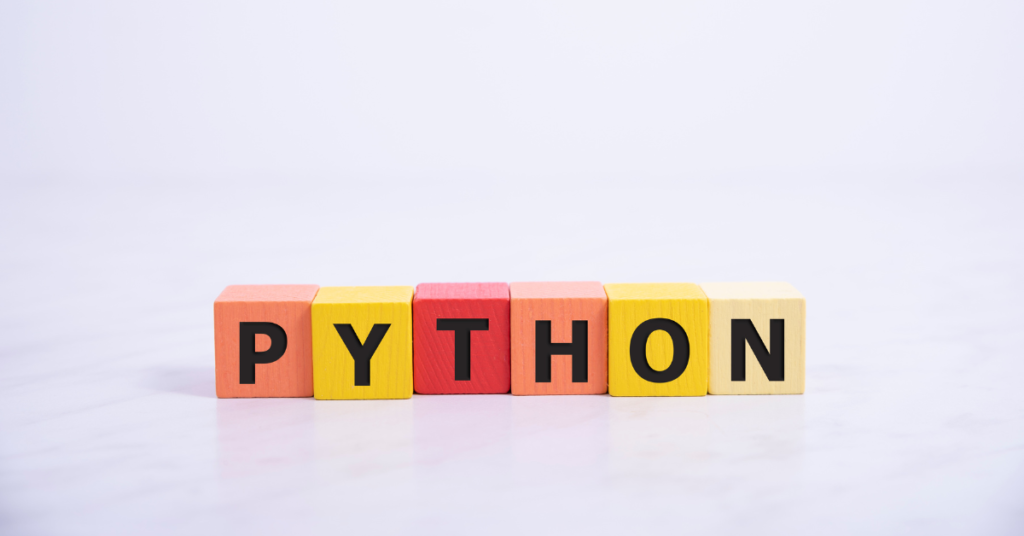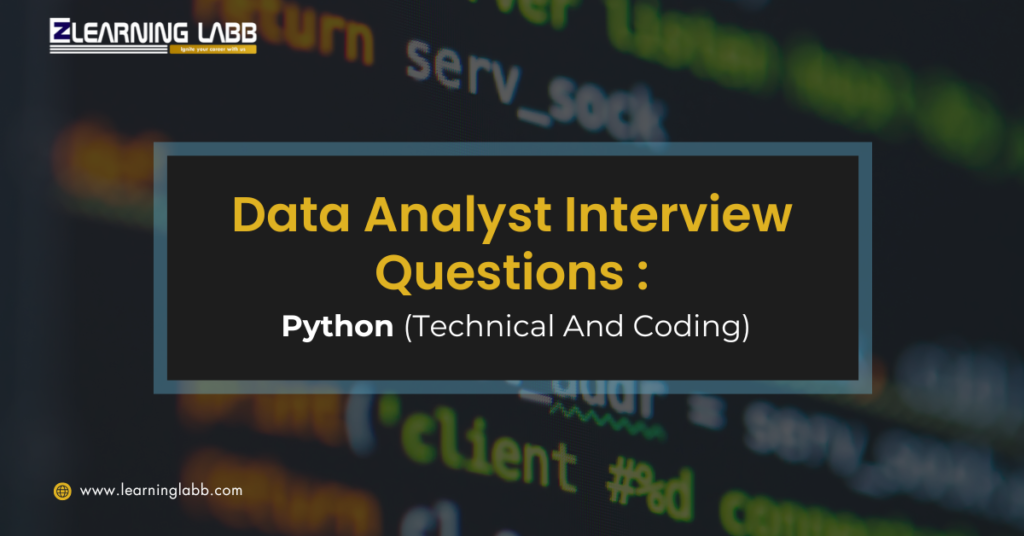Data Analyst Interview Questions Python: Are you gearing up for a data analyst interview where Python skills are a must? Whether you’re a fresher or an experienced professional, mastering Python for data analysis is very important in today’s competitive job market.
Python has become an essential tool for data analysts due to its versatility and ease of use in handling data and if you’re preparing for a data analyst interview where Python skills are crucial, it’s essential to be ready for specific types of questions.
This article contains the following:
- Data Analyst Interview Questions Python
- Python Technical Interview Questions Data Analyst
- Python Coding Interview Questions Data Analyst
- Common Python Interview Questions Data Analyst
Data Analyst Interview Questions Python
Python’s versatility in data manipulation and analysis makes it indispensable for data analysts. It has become an essential tool for data analysts due to its versatility in handling data manipulation, visualization, and statistical analysis.
In this article, we will cover technical, coding and a few common Python interview questions for data analysts.

Common Python Interview Questions for Data Analysts
Beyond technical and coding aspects, understanding common Python concepts is crucial. Here are some data analyst interview questions Python:
- What are Python decorators? How are they useful?
- Define decorators as functions modifying other functions’ behaviors, illustrating their utility in adding functionalities like logging or authentication.
- Explain list comprehensions and provide an example.
- Describe list comprehensions as concise ways to create lists based on existing lists, demonstrating their efficiency in Python programming.
- What is the difference between deep copy and shallow copy in Python?
- Differentiate between deepcopy() and copy() methods in the copy module, explaining scenarios where each type of copy is appropriate.
- How does Python manage memory?
- Discuss Python’s memory management, including garbage collection and the importance of managing memory efficiently in data-intensive applications.
- Describe Python’s global interpreter lock (GIL) and its impact on multi-threaded programs.
- Outline the role of GIL in limiting Python’s multi-threading capabilities, emphasizing alternatives like multiprocessing for concurrency.
Hope the above common Python interview questions data analyst were helpful. On to the next part now: Python Technical Interview Questions Data Analyst.

Python Technical Interview Questions Data Analyst
Python technical interview questions for data analysts typically assess your knowledge of Python programming concepts and how well you can apply them to data analysis tasks.
- Data Structures and Algorithms: Be prepared to discuss how you would use Python data structures like lists, dictionaries, and tuples to solve typical data manipulation problems.
- Pandas and NumPy: Employers often look for candidates familiar with Python libraries like Pandas and NumPy for data manipulation and analysis. Expect questions on how to perform data operations using these libraries.
- Data Cleaning and Preprocessing: You might be asked about techniques and Python code snippets for cleaning and preprocessing messy data sets, such as handling missing values or outliers.
- SQL and Database Interaction: While not strictly Python-related, many data analyst roles require interaction with databases. Brush up on how to use Python libraries like SQLAlchemy or sqlite3 to query and manipulate data.
- Visualization: Python offers powerful visualization tools like Matplotlib and Seaborn. Expect questions on how to create different types of plots and charts to effectively communicate insights from data.
Here are some common types of technical questions you might encounter during a data analyst interview. Check out these Python technical interview questions data analyst:
- What are Python’s data types commonly used in data analysis?
- How do you handle missing or corrupted data in Python?
- What are lambda functions, and how are they used in Python?
- Explain the difference between NumPy and pandas for data analysis.
- How does Python handle big data?

Python Coding Interview Questions for Data Analysts
Coding proficiency is often tested to gauge your practical skills in data analysis. In coding interviews for data analysts, you’ll likely be asked to solve problems using Python. Here are some Python coding interview questions data analyts:
1. Write code to read a CSV file into a pandas DataFrame.
Provide a step-by-step solution using pandas’ read_csv() function, ensuring data is loaded correctly for subsequent analysis.
2. Calculate the correlation matrix for a DataFrame in Python.
Demonstrate how to compute correlations between numeric variables using pandas’ corr() method, discussing its significance in data exploration.
3. Create a function to plot a histogram of a given numeric column in a DataFrame.
Write a function utilizing Matplotlib or Seaborn to visualize data distributions, emphasizing data insights gained from histograms.
4. Implement a function to perform basic data cleaning tasks in Python.
Outline a function using pandas for tasks such as removing duplicates, handling missing values, and converting data types to facilitate analysis.
5. Write Python code to perform linear regression on a dataset.
Showcase the use of libraries like statsmodels or scikit-learn for regression analysis, interpreting results to derive meaningful conclusions.
On A Final Note…
Mastering Python for data analysis involves not only understanding its syntax and libraries but also applying them practically to solve real-world problems. Practice coding challenges, review Python libraries relevant to data analysis, and be ready to discuss your past projects.
Remember, practice makes you perfect! Use these questions as a guide to refine your Python skills and excel in your upcoming data analyst interviews. And for more guidance, visit us here!





